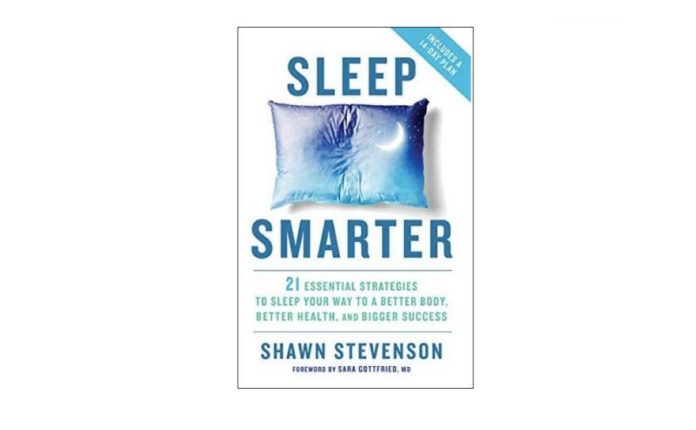
Would you like to get more from your six hours of sleep than what others get from a full eight hours? Did you know that quality sleep is the magic behind effective weight loss, a more youthful appearance, decreased risk of stroke, better mental health, better memory and more?
When I interviewed hundreds of high achievers for my research on extreme productivity, many people mentioned the value of sleep. We can’t actually manage time, but we can manage our energy, focus and attention. In addition to things like using food as fuel and staying hydrated, sleep is at the top of the list of drivers of sustainable energy.
In his book, Sleep Smarter: 21 Essential Strategies To Sleep Your Way To A Better Body, Better Health And Bigger Success, Shawn Stevenson teaches specific strategies to get the best quality sleep possible, whether you are getting eight hours or a lot less.

Photo: Pixabay/Shawn Stevenson
Stevenson offers 21 specific strategies and a 14-day action plan that can be used to maximize sleep results. Below are the 5 strategies that resonate the most with me.
Strategy 1: Get More Sunlight
Ironically, to have a better night you need to get more sun. It turns out that our circadian timing system—our built-in 24-hour clock—begins ticking when sunlight tells us to wake up in the morning, between 6:00 and 8:30 a.m. Ideally we should get 30 minutes of direct sunlight each morning, but Stevenson suggests taking our work breaks or lunch outside or near a window if morning light isn’t possible.
Strategy 2: Avoid Screens Before Bedtime
Cutting out screen time at night is the number one thing we can do to immediately improve our sleep, says Stevenson. From TVs to computers to mobile phones—they all emit a blue spectrum of light that can trigger daytime hormones and disorient our body’s natural preparation for sleep. Consider a self-imposed screen curfew at least 90 minutes before bed (i.e., put away that Kindle and pick up an old fashioned paper book). Alternatively, wear blue light blocking glasses, or download blue light-blocking software for your devices. Note that iOS 9.3 from Apple has a new feature called “Night Shift” that can be enabled to deal with this problem.
Strategy 3: Implement A Caffeine Curfew
While you already likely know that coffee and other caffeinated drinks run the risk of keeping you awake at night, you probably don’t realize how big of a problem they can be. Due to the long half-life of caffeine—five to eight hours—even drinking coffee six hours or more before bed time can have dramatic effects. In one study, participants consumed caffeine six hours before bedtime and physiological measurements showed they lost on average an hour of sleep a night, even though the subjects weren’t aware of it themselves. As a rule, you should consider a caffeine ban after 2 p.m. Long term, you may want to consider giving up caffeine entirely.
Strategy 4: Keep The Room Chilly
When it’s time to sleep, your body’s core temperature drops, but if the environment stays too hot, then it can counteract the heat signal of your body. Studies show that the ideal room temperature for sleep is between 60 and 68 degrees Fahrenheit. An advanced strategy is to actually use a cooling pad so that you and your bed partner can adjust the temperature perfectly.
Strategy 5: Create A Sleep Sanctuary
Interestingly, one of the most compelling chapters is also the one lightest on science. Stevenson states, “Humans are creatures of habit and habitat.” He suggests that our brain looks for repeatable patterns, or rituals, and if we do things in our bedroom like work, or watch TV, it sends signals to our brain that when we get into bed, we might not be ready to sleep. Alternatively, if you only use the bedroom for sleep and sex, your brain will quickly settle more into one of those options. I definitely believe that our external environment can have a large effect on our internal feelings. (The more stressed I feel, the more likely I am to clean up my desk.) So to create a true “sleep sanctuary” you might consider installing a humidifier to keep the air moist, bring in air-purifying plants (e.g, English ivy), or even put some jasmine oil on your pillows all to help make your room more peaceful, calm and relaxing.
Too many people are putting their physical and mental health at risk from their poor sleep habits. In Sleep Smarter, Shawn Stevenson shares 21 specific strategies and a “14-Day Sleep Makeover Plan” that will lead you to be mentally and physically stronger.
–
Kevin Kruse is the author of 15 Secrets Successful People Know About Time Management and “The Millionaire Day Planner: A 1-Page Planning Tool.”





